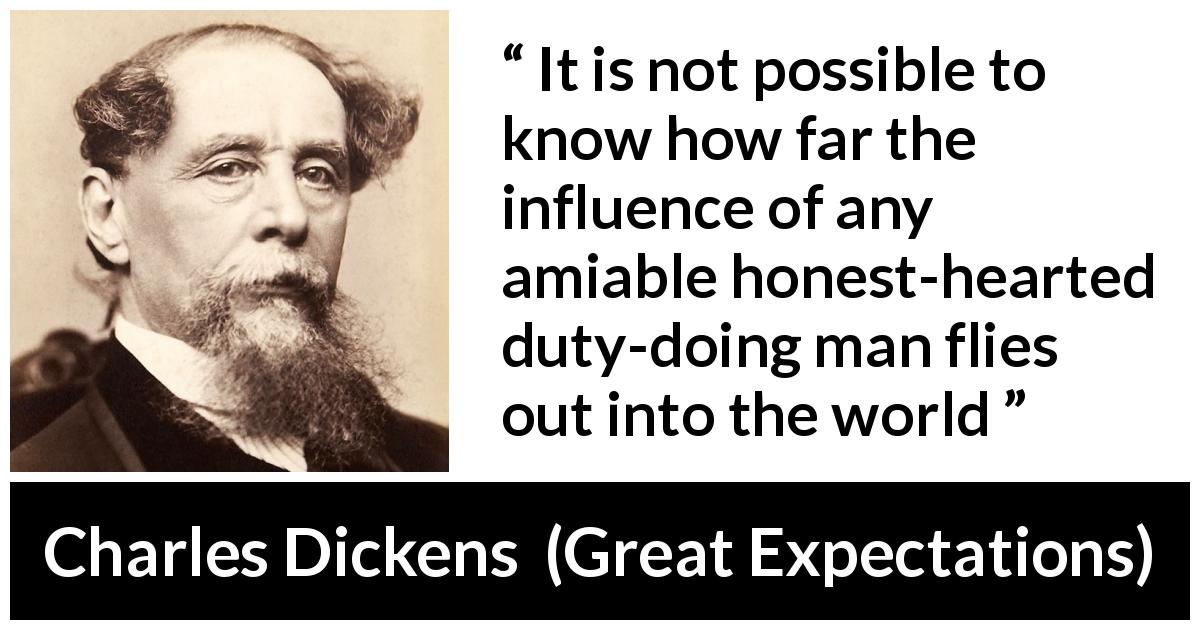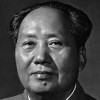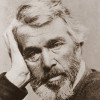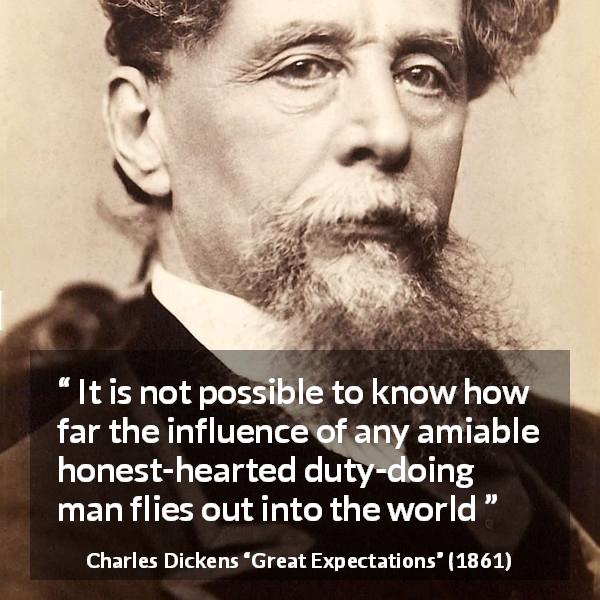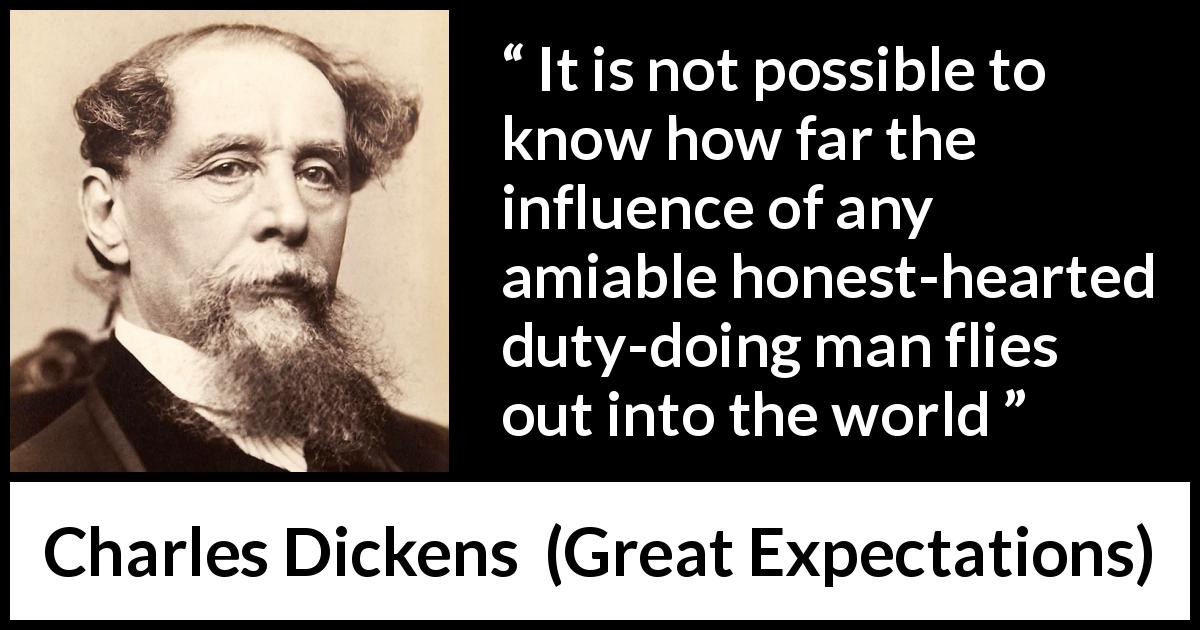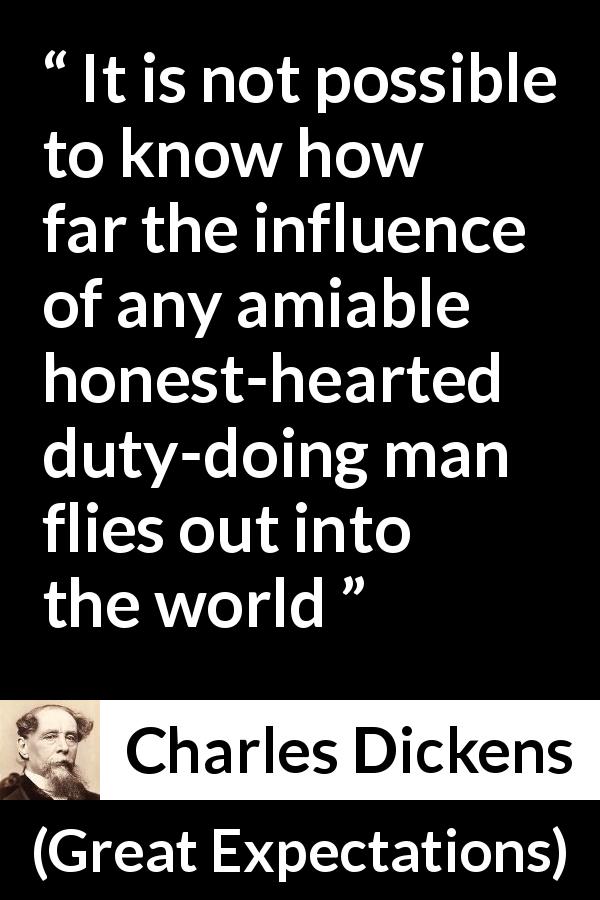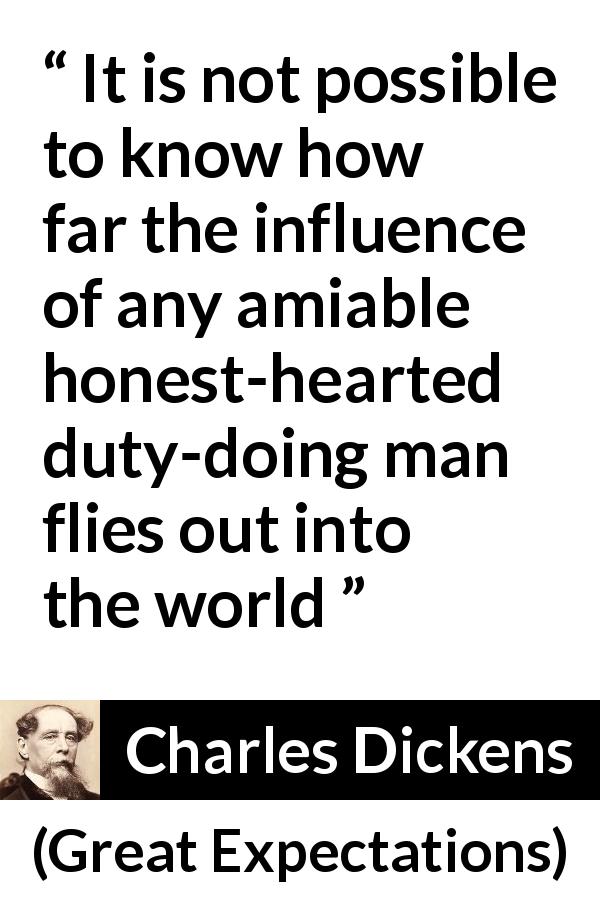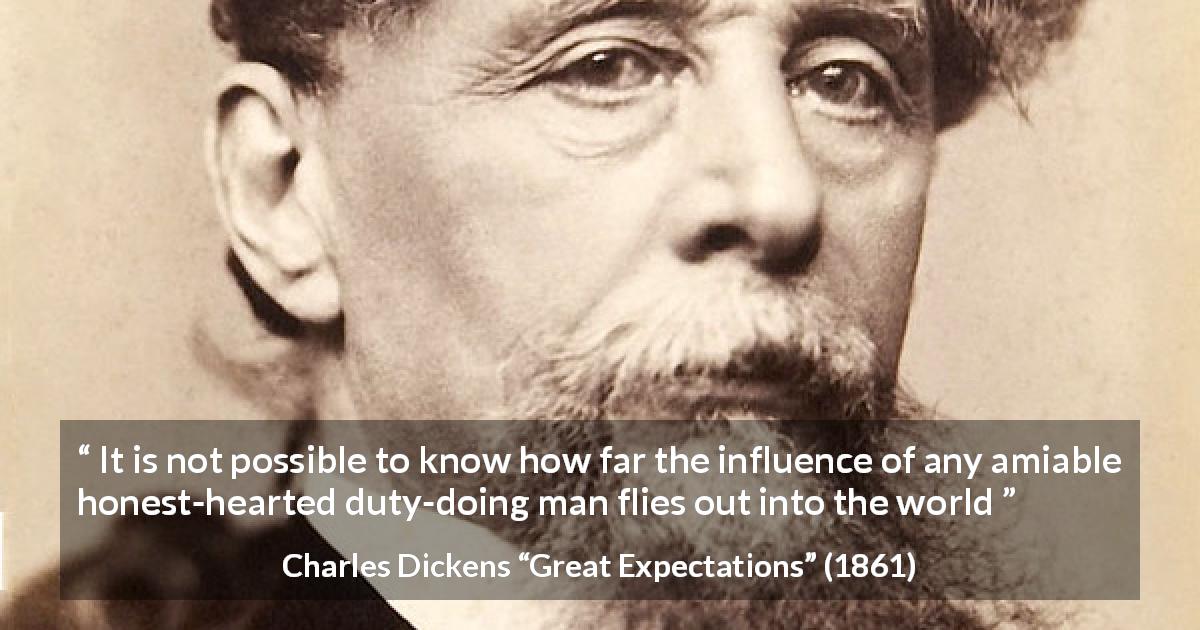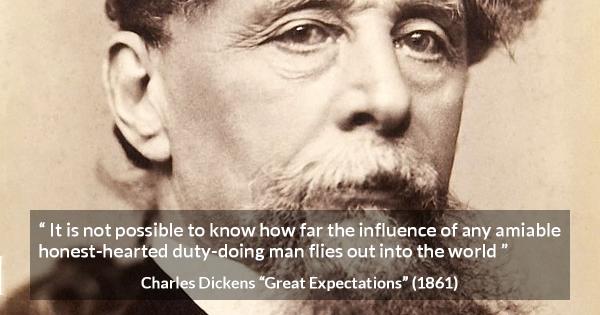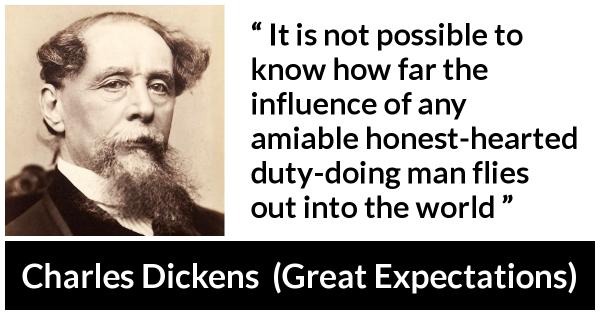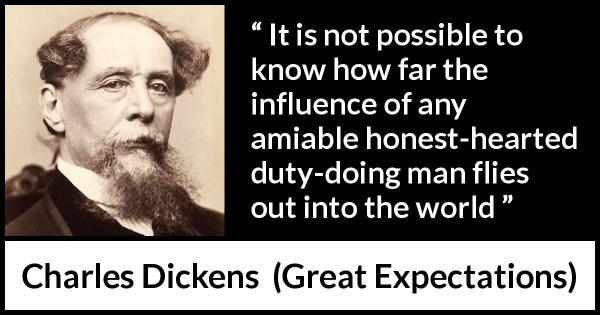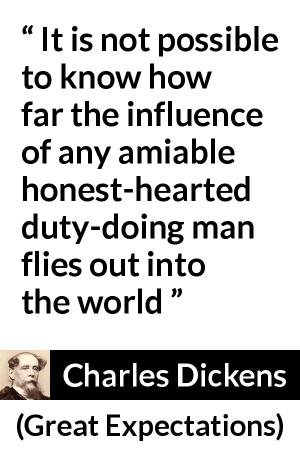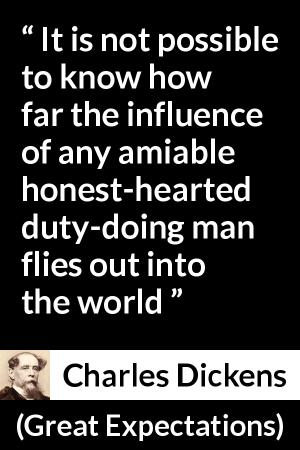“ It is not possible to know how far the influence of any amiable honest-hearted duty-doing man flies out into the world ”
Charles Dickens, Great Expectations (1861). copy citation
| Author | Charles Dickens |
|---|---|
| Source | Great Expectations |
| Topic | honesty goodness influence |
| Date | 1861 |
| Language | English |
| Reference | |
| Note | |
| Weblink | http://www.gutenberg.org/files/1400/1400-h/1400-h.htm |
Context
“It was not because I was faithful, but because Joe was faithful, that I never ran away and went for a soldier or a sailor. It was not because I had a strong sense of the virtue of industry, but because Joe had a strong sense of the virtue of industry, that I worked with tolerable zeal against the grain. It is not possible to know how far the influence of any amiable honest-hearted duty-doing man flies out into the world; but it is very possible to know how it has touched one's self in going by, and I know right well that any good that intermixed itself with my apprenticeship came of plain contented Joe, and not of restlessly aspiring discontented me.
What I wanted, who can say? How can I say, when I never knew? What I dreaded was, that in some unlucky hour I, being at my grimiest and commonest, should lift up my eyes and see Estella looking in at one of the wooden windows of the forge.” source
What I wanted, who can say? How can I say, when I never knew? What I dreaded was, that in some unlucky hour I, being at my grimiest and commonest, should lift up my eyes and see Estella looking in at one of the wooden windows of the forge.” source
